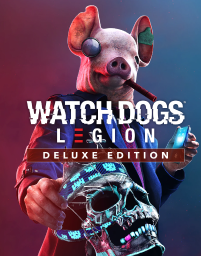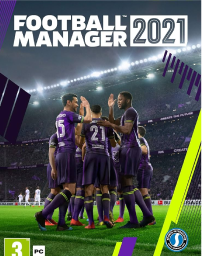
Andres Gonzales
20.11.2024 08:16
273
20 min
Where Do G2A Sellers Get Their Keys? Here Are the Supply Sources

In the bustling world of digital gaming, G2A sellers stand out by offering keys to a multitude of popular games at competitive prices. Yet, this raises a burning question: Where do G2A sellers get their keys? Understanding the G2A key supply sources can demystify the process, allowing gamers to make informed choices. Whether through official distributors, promotional giveaways, or perhaps even other gamers, these methods form a myriad of G2A key purchasing methods that sellers tap into. It's crucial to explore how these various channels contribute to the digital marketplace and impact both the industry's economy and consumer trust.
Main Points
- The diversity of G2A key supply sources.
- Impact of sourcing methods on the gaming industry.
- Consumer trust and purchase decisions.
Understanding the Key Acquisition Process: How G2A Sellers Source Their Products
Exploring the layers of the digital marketplace can be a complex endeavor. To initiate this journey, understanding how G2A sellers source their keys becomes imperative. The seemingly simple process of obtaining a key involves a nuanced tapestry of different methods and sources. Suppliers employ diversified strategies that often raise questions about legitimacy and accessibility. Here are some intriguing insights into how sellers acquire their G2A key supply sources:
- Official Distributors: Many sellers partner directly with authorized distributors to ensure authenticity.
- Pre-order Deals: Sellers capitalize on early-bird deals to secure high-demand keys before release. These offers present lucrative opportunities for proactive sellers.
- Regional Pricing Exploits: Some sellers purchase keys in regions where prices are lower and sell them at a profit elsewhere. This approach, while controversial, remains prevalent.
- Bulk Purchases: By buying keys in bulk, sellers can negotiate better prices and increase their margins. This strategic decision often reflects a deep understanding of market dynamics.
While these methods shed light on where to get G2A keys, they also prompt further inquiries into the ethics and legality surrounding them. Navigating this landscape requires a blend of curiosity and caution, as the pathways to acquiring keys are riddled with both opportunity and ambiguity.
The Role of Authorized Distributors in G2A’s Supply Chain
In the multifaceted landscape of G2A's supply chain, G2A seller key sourcing plays a pivotal role. Authorized distributors partner with G2A to provide a steady digital game key supply source. They ensure product authenticity and extend reliability to consumers. Yet, one may wonder how these distributors manage inventories? It's an intriguing dance between supply and demand. Additionally, the utilization of diversified G2A key purchasing methods creates a dynamic market environment. While some question the transparency of these processes, authorized distributors often maintain the delicate balance of legality and accessibility, which is crucial for the ever-evolving digital marketplace.
Analyzing Grey Market Dynamics: How Unofficial Channels Supply Game Keys
The world of digital gaming is intriguing, yet perplexing. In this realm, G2A sellers have mastered the art of finding elusive game keys, often leaving many to wonder about their methods. While unofficial channels undoubtedly play a significant role, the process is shrouded in secrecy. Some hypothesize a vast network spanning geographies, others suggest a mix of shadowy deals. Yet, questions linger: Are these methods entirely legit, or are gamers unknowingly treading a fine line? It's how G2A sellers find keys that forms the crux of this enigmatic market puzzle. The deeper one delves, the more muddled the picture becomes, blending legality with ambiguity.
Direct from Developers: Exploring Legitimate Partnerships and Reselling Agreements
Understanding legitimate partnerships with developers can sometimes feel like wandering through a labyrinth of legal jargon and endless formalities. At its core, however, a genuine reselling agreement represents a mutual promise. This promise can elevate both parties' ventures, opening up pathways to fresh opportunities. Yet, one must ponder the criteria that deem partnerships 'authentic.' Is it simply about a signed document? Or do nuanced, informal exchanges define such collaborations? The answer isn't always straightforward. For some, clarity resides in direct developer communications, safeguarding interests and fostering transparency. Others suggest it's the unsaid, the implicit understanding that delineates a true collaboration. Thus, while official agreements map out legal territories, the essence often lies in human connections that go beyond ink and paper.
In the realm of business negotiations, bulk purchases often serve as a powerful leverage point. Companies engage in these large-scale transactions, not merely for immediate gains but for strategic advantages. Discounts achieved through volume buys can significantly impact profit margins. However, the art lies in timing and prediction of demand. Yet, what happens when predicted forecasts go awry? Seasoned strategists often ponder this conundrum. They know that timing mismatches can flip advantages into risks. Yet, the allure of a discount remains potent. In these perplexing scenarios, key buying strategies must adapt, evolve, and sometimes even reverse. Amidst uncertainty, the risks are as palpable as the rewards. Thus, while the mechanics seem straightforward, the real mastery is in navigating these complexities.
Regional Price Differences: Leveraging Economic Disparities for Key Sourcing
Understanding regional price differences is crucial for organizations aiming to optimize their supply chain strategy. By leveraging these economic disparities, companies can enhance their sourcing efficiency. Goods and services are not priced equally everywhere, yet this common knowledge is often neglected in strategic formulations. What happens when businesses ignore these crucial pricing variances?
Companies must adapt sourcing strategies based on these regional differences. For instance, raw materials might be significantly cheaper in one region than another, creating a pricing paradox. This paradox is not always straightforward, as logistical expenses can sometimes negate savings. Therefore, meticulous analysis of both direct and indirect costs becomes imperative.
"Understanding the cost structure is half the battle won in transforming regional price differences into strategic advantages."
Ignoring regional economic landscapes might lead organizations to overlook potential cost-saving opportunities. Thus, how can businesses effectively manage their resources in light of these intricate disparities? While challenges exist, they also present unique opportunities for reshaping sourcing strategies.
The Legality and Ethical Considerations of Key Reselling on Platforms like G2A
The world of key reselling platforms, such as G2A, sits snugly entrenched between the blurred lines of legality and ethics. On one hand, these platforms offer a marketplace for resellers to trade gaming keys, promising value and diversity. But is this legal? While technically operating within the realms of legality, numerous developers argue that it veers into murkier ethical waters. Why? Many keys originate from fraudulent activities, rooting uncertainty for consumers. Furthermore, this ecosystem may harm developers economically, shrinking their potential revenue.
- Legality: Does not equate to ethical righteousness.
- Fraud: Playwright in the drama—often stumbling upon unintended consequences.
- Developer Revenue: A casualty in this convoluted trade.
The debate rages on—leaving us pondering the true cost behind every purchase. Is a bargain worth the potential ethical misstep? That remains a question for every consumer's moral compass.
Frequently Asked Questions
What is G2A?
G2A is an online marketplace that offers a wide range of products, including game keys, software licenses, and digital goods. It allows individual sellers and companies to list and sell digital keys to customers worldwide.
How do G2A sellers acquire game keys?
G2A sellers can acquire game keys from various sources such as authorized wholesalers, game developers, promotional campaigns, and sometimes through retail purchases. However, the exact source can vary from seller to seller.
Are the keys on G2A legitimate?
While many keys on G2A are legitimate, the marketplace operates on a third-party seller model, similar to eBay. This means there can occasionally be unauthorized or fraudulent keys. It's essential to check the reputation and reviews of sellers before purchasing.
Is it safe to buy keys from G2A?
Buying keys from G2A can be safe if you take precautions such as checking seller ratings and reviews. G2A also offers a protection program called 'G2A Shield' which can provide some buyer protection for a fee.
What should I do if a key I purchased from G2A doesn't work?
If a key you purchased from G2A is invalid or not working, you should contact the seller through G2A's platform to resolve the issue. If unsuccessful, you can escalate the matter through G2A's customer support and protection services for assistance.

Andres Gonzales - Editor
14.11.2024 16:48
32
Andres Gonzales has 12 years of experience in digital video game and gift card distribution, and has been studying digital marketing since 2015.
Buy Wholesale or Retail
Video Games and Gift Cards
Best Price Guarantee!









NEWSLETTER
Subscribe to our newsletter and receive our articles about games directly to your email.
